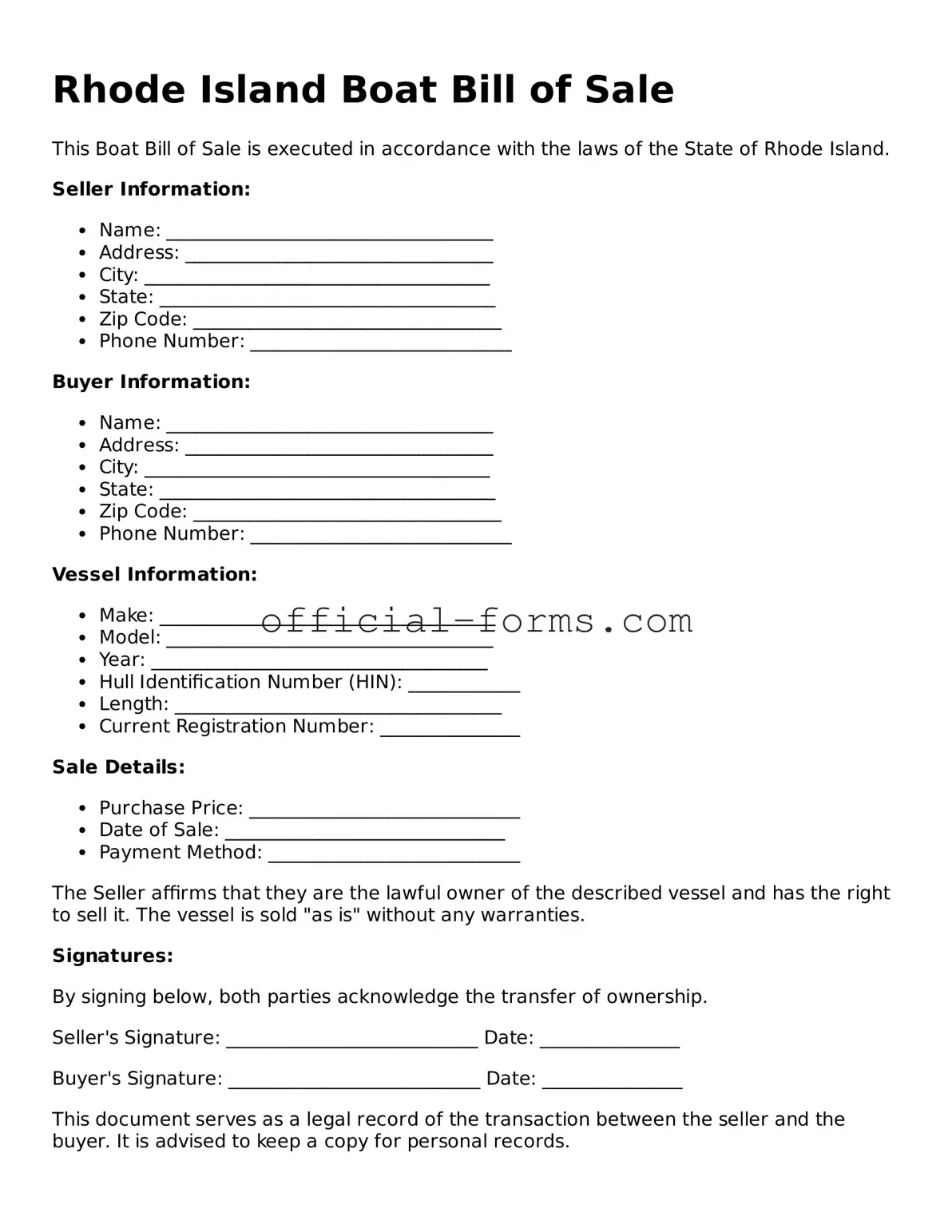When filling out the Rhode Island Boat Bill of Sale form, many individuals make common mistakes that can lead to complications later. One frequent error is not including all necessary information. Buyers and sellers must ensure that details such as the boat's make, model, year, and hull identification number are accurately recorded. Missing even one piece of information can create issues during registration.
Another mistake often seen is the failure to provide proper identification. Both parties should include their full names, addresses, and contact information. Without this, it can be difficult to verify ownership or resolve disputes in the future.
People sometimes overlook the importance of signatures. The form requires signatures from both the buyer and the seller to be valid. If either party neglects to sign, the document may not hold up in legal situations. Ensuring both parties sign in the appropriate places is crucial.
Dates are also significant on the Boat Bill of Sale. Some individuals forget to include the date of the transaction. This omission can lead to confusion about when the sale occurred, especially if questions about ownership arise later.
Another common oversight is failing to include the sale price. The form should clearly state the amount the buyer paid for the boat. Not documenting this can lead to disputes over the value of the boat and potential tax implications.
People often forget to keep copies of the completed form. After filling it out, both the buyer and seller should retain a copy for their records. This serves as proof of the transaction and can be helpful in case of future disputes.
Some individuals do not check for errors before submitting the form. Simple typos or incorrect information can cause delays in processing or even lead to rejection of the document. Taking a moment to review the form can save time and hassle later.
In some cases, individuals may not understand the implications of the sale. It is important to know that once the bill of sale is signed, ownership transfers. Buyers should ensure they are ready to take on the responsibilities that come with owning a boat.
Lastly, people sometimes fail to consult local regulations. Each state may have specific requirements regarding boat sales. Checking Rhode Island's regulations can help avoid mistakes and ensure compliance with local laws.

